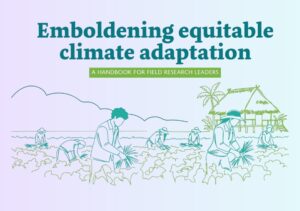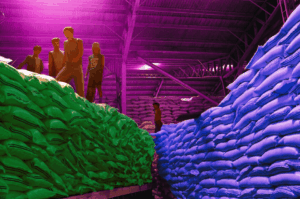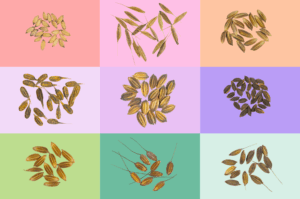China’s Ministry of Agriculture and Rural Affairs, and the National Development and Reform Commission have published plans to reduce the emissions of methane gas in the agricultural sector.
In the country’s agriculture sector, paddy fields are the country’s biggest source of methane gas emissions and methane reduction was listed as the top priority in the guideline.
The document aims to promote water conservation in rice cultivation and the reduction of methane gas production by shifting from traditional flooded-field methods.
Read the story @Eco-Business
Farmers’ participatory evaluation of alternate wetting and drying irrigation method on greenhouse gas emission, water productivity, and paddy yield in Bangladesh
Due to Bangladesh’s frequent water shortages, sufficient water to irrigate rice fields is increasingly scarce. Additionally, due to global warming, severe changes in the pattern of precipitation and drought have become more prevalent, posing a substantial danger to managing water for rice farming. The purpose of this study was to determine the prospect for alternate wetting and drying to reduce greenhouse gas emissions and its effect on rice production and irrigation water saving in the farmers’ rice fields.
Mitigating greenhouse gas emissions from irrigated rice cultivation through improved fertilizer and water management
Annually, Bangladesh consumes about 2.9 million metric tons of urea and about 60% of this is used in rice cultivation. Therefore, this could contribute to increasing atmospheric pollution due to increased CH4 and N2O emissions. Increasing nitrogen-use efficiency by adopting urea deep placement could reduce environmental pollution including mitigation of GHG emissions compared to conventional nitrogen management through broadcasting method or the adoption of an integrated plant nutrient system. Moreover, UDP could be more effective in mitigating greenhouse gas emissions when it is combined with alternate wetting and drying irrigation.
Guide to supporting agricultural NDC implementation: GHG mitigation in rice production in Vietnam
The purpose of this document is to serve as a guide for research to support national partners to plan, finance, and implement the agricultural Nationally Determined Contributions. This is a summary of the collaborative and evolving process initiated by the partnership between the International Rice Research Institute and the Ministry of Agriculture and Rural Development of Vietnam..










